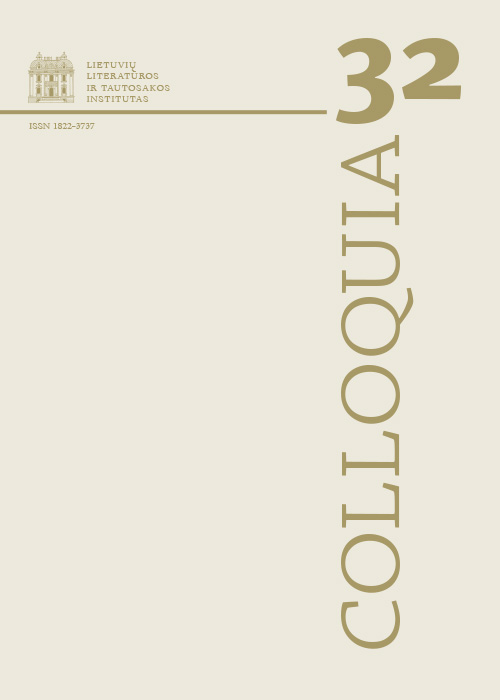Autobiography and Soviet Lithuanian Women Writers
Abstract
This article focuses on autobiographies by women writers published in the last, two-volume version of a collection titled Tarybinių lietuvos rašytojų autobiografijos (Autobiographies of Soviet Lithuanian Writers), published in 1989 (previous versions appeared in 1957, 1967, and 1977). Solveiga Daugirdaitė explores what women writers felt it was appropriate to say about themselves to their society, and what can be gleaned from their statements about the nature of that society, the strengths and weaknesses it accorded its female members, the demands it made on them, the “spirit of the times”, and so on. Examining these autobiographies, she tries to reconstruct that social actor’s – the Soviet woman author’s – collective and individual identity, her courage and her fear of revealing herself, and the tension between her roles as public persona and “regular woman”. In Soviet Lithuania, although women writers’ professional work accorded them a place within that patriarchal, dominant society’s elite, they remained secondary players within it. Seeking to be recognized as equals, these women writers presented themselves as professionals, and for this reason their public accomplishments have pride of place in the autobiographies. The goal of this article is to decode what is nevertheless said about their private lives, as much as it is possible to separate that from the public. In reading women’s autobiographies from this period, it is therefore appropriate to draw both on the traditions for studying women’s autobiography, as well as studies of documents from the Soviet period.
Downloads
Most read articles in this journal
- Eva Eglāja-Kristsone, Digital Resource Literatura.lv: An Introduction , Colloquia: Vol. 47 (2021)
- Rasa Čepaitienė, A Voice in the Wild..? , Colloquia: Vol. 40 (2018)
- Vigmantas Butkus, The Image of Ancient Lithuania in Latvian Literature of the First Half of the 20th Century , Colloquia: Vol. 51 (2023): Colloquia
- Joanna Degler (Lisek), Between Ethnocentrism and Multiculturalism: The Cultural Landscape in Polish Guidebooks to Vilnius (1856–1939) and Zalmen Szyk's Toyznt yor Vilne , Colloquia: Vol. 48 (2021)
- Birutė Jonuškaitė, Remembering the Writer Juozas Aputis , Colloquia: Vol. 40 (2018)
- Gytis Lukšas, Oh, Juozaputis! , Colloquia: Vol. 40 (2018)
- Anna Gerasimova, Jealous of Copernicus. Tomas Venclova in Russian: Problems Translating Traditional Verse and Solutions , Colloquia: Vol. 42 (2019)
- Dangiras Mačiulis, Vaižgantas’s Attempts at Constructing Lithuanian Collective Memory , Colloquia: Vol. 44 (2020)
- Rūta Lazauskaitė, Simonas Daukantas in Interwar Reflections , Colloquia: Vol. 44 (2020)
- Aurelija Mykolaitytė, Reflections of Cultural Trauma in Romualdas Granauskas’s novel Duburys (The Pit) and Ramūnas Klimas’s Maskvos laikas (Moscow Time) , Colloquia: Vol. 38 (2017)




